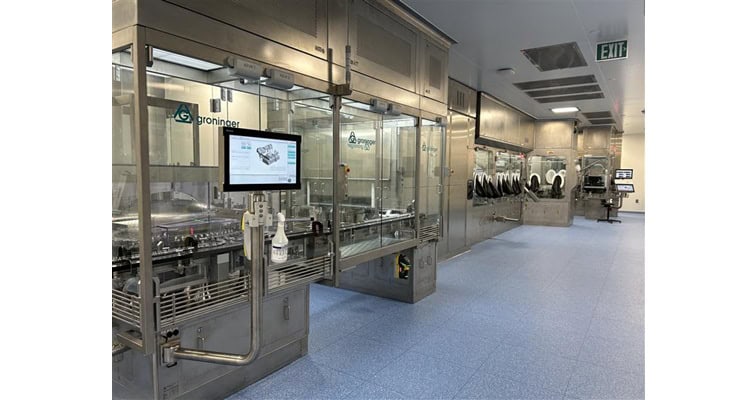Pharmaceutical industry provides opportunities very fast and people opt new employments very fast. In a professional journey spanning more than four decades, I observed in many colleagues across different organsations, a tendency to become nostalgic about past employments, frequently glorifying their earlier roles while expressing dissatisfaction with the present responsibilities and circumstances.
This essay examines the correctness and misconceptions surrounding such euphoria, analyses its psychological drivers, and weighs its impact, concrete advantages and disadvantages.
Personally, I refrained from such comparisons because I carried the perspective of both an employee and an employer. From the employer’s standpoint, I realised that continuously comparing the present with the past could dishearten the current employer—not because the present is inferior, but because the organisation reaches its status through sustained efforts and within the limits of its capacity. There is no inherent good or bad in this, it simply reflects the reality of progress and circumstance.
Understanding the Euphoria of Past Employment
Euphoria regarding past employment is an emotionally charged response excessively or glorifying previous workplaces, leaders, colleagues, facilities, routines, or achievements and comparing current situation to the perceived perfection of past roles. This tendency is often characterised by negative comparisons, a lack of perspective on current challenges, a tendency to quit prematurely due to a “grass is always greener” syndrome, a feeling of stagnation or stuck because “everything was better” in a previous position. While it is natural to reminisce fondly, such sentiments create an unrealistic or skewed perception of the past versus the present or future.
How Right or Correct Is This Euphoria?
Euphoria about previous jobs is partially valid, reflecting authentic experiences of camaraderie, professional success, personal growth, or cultural alignment. Nostalgia grounded in genuine memories fosters meaning, resilience, and optimism, during stress or transition.
Nostalgia increases meaning in life, self-esteem, optimism, and positive affect. It is necessary to pragmatically analyse and sincerely acknowledge if colleagues were praising their earlier employment while in the past employment which he praises now. One will realise that these alleged positive effects may actually be pseudo effects if they never existed earlier and are being versed now. There is not enough known about the colleague although the situation around him was better as per his delivery.
Such euphoria is often a “rosy retrospection” the tendency to view the past in an unrealistically positive light, which can distort self-assessment and present-day satisfaction. It is selective, remembering successes while minimising (or overlooking) hardships, conflicts, or stagnation one might have also.
How Wrong or Problematic Is It?
Euphoria can be misleading when it morphs into idealisation and prevents individuals from fully accepting present realities or moving forward. If persistent, it can engender disillusionment with current roles, foster disengagement, or incite unwarranted comparisons and hinder adaptation to new environments or learning from past mistakes.
Reasons for Euphoria Regarding Past Jobs
Any situation that aptly fulfills hierarchy of needs as described by Moslow and others, make a permanent impression which is uncontrollably expressed in a diametrically opposite situation or in a similar situation. A late realisation that past employment satisfied psychological needs such as air, water, food, heat, clothes, reproduction, shelter and sleep, or physical and economic safety needs i.e. health, personal, emotional and financial needs, love or belongingness and intimacy, acceptance and trust needs, esteem needs, cognitive needs, aesthetic needs, self-actualisation needs, transcendence needs.
Nostalgia is a Coping Mechanism. During periods of stress, burnout, or workplace injustice, people look to the “golden days” for comfort, using positive recollections as a psychological buffer.
Memories often cluster around moments of achievement, recognition, or innovation, which fulfill self-esteem and competence needs.
Contextual Triggers
Transitions and Uncertainty: Starting a new job, experiencing organisational change, or facing uncertainty makes past successes feel safer and more appealing in hindsight.
Cultural Rituals: Organisational traditions, reunions, or collective storytelling can rekindle positive recollections and foster group identity.
Workplace Rituals and Shared History: Storytelling about “how things used to be” in the office are an informal way to bond with colleagues, reinforce cultural values, or highlight organisational legacy.
Advantages of the Euphoria of Past Employment:
These are of psychological, social, organisational and motivational type and as elaborated above, nostalgia provides a temporary relief by generating transient feeling of satisfying hierarchy of needs (Maslow).
-
-
It rekindles a sense of purpose, motivation, and fulfillment in the present.
-
Improves Resilience: Employees facing adversity or burnout can use nostalgia as a coping tool, strengthening resilience and perseverance.
-
Fosters Optimism and Positive Affect: Nostalgic memories elevate mood, spark optimism, and cultivate hopefulness for the future.
-
Strengthens Team Bonding: Sharing fond memories of past achievements or challenges deepens interpersonal connections and build trust in current teams.
-
Promotes Engagement and Retention: Organisational nostalgia, when harnessed constructively, can boost morale, encourage commitment, and reduce turnover intentions, especially among those at risk of burnout or disengagement.
-
Catalyses Creativity: Engaging with positive memories sparks creative thinking and fuel innovation by reminding employees of successful problem-solving or pioneering moments from the past.
-
Powerful educational tool: Sharing of unprotected knowledge gained during past assignments with colleagues enriches knowledge content of colleagues and organisation, sharpens skills and technologies, reveals better procedures with increased assurance of success, saves resources, may improve top and bottom lines and gain competitive edge in the market.
-
Reinforces Professional Identity: By recalling skills mastered and challenges overcome, employees strengthen their sense of competence and professional integrity.
-
Motivates Future Excellence: The pride and satisfaction drawn from past successes can inspire renewed effort and ambition in present roles.
-
Disadvantages of Euphoria Over Past Employment Psychological and emotional downsides, Career and Organisational Risks, impact mental health
-
-
Distorted Perception: Persistent focus on the “good old days” clouds accurate appraisal of both the past and present, leading to dissatisfaction, frustration or cynicism about current opportunities.
-
Hindrance to Growth: Idealising a former job anchors individual to outdated behaviors or strategies, reducing growth opportunities and openness to learning or adaptation in the current workplace and prevents employees from developing emotional resilience.
-
Risk of Alienation: Chronic nostalgia fosters a sense of not belonging, increases loneliness, renders reintegrating into a new organisational culture, difficult.
-
Stifling Change: Teams or leaders preoccupied with their legacy resist necessary changes or innovation, stalling progress.
-
Diminished Performance: Excessive or escapist workplace nostalgia distracts from present tasks, impairs focus, and contributes to counterproductive work behaviors.
-
Negative Comparisons: Constant vocalizing of comparisons to new colleagues or leadership, idolising former employer spreads negativity and demotivation, undermines current authority/figure, sows’ discontent, diminishes group cohesion.
-
Dependency on the Past: A habitual refuge from present challenges, fuels disengagement and demotivates to tackle ongoing difficulties.
-
Potential for Burnout: Longing excessively in prior positive experiences without building new ones worsens burnout, employees feel stuck or powerless to recreate sources of meaningful professional life.
-
It is counterproductive when it becomes escapism or a barrier to growth,.
-
How to combat it:
-
Develop Perspective: Acknowledge that work is an emotional “rollercoaster” with highs and lows, rather than a consistently euphoric experience. The circumstances, context, challenges, goals, and objectives of the past differ from those of the present. Unique challenges and opportunities in the present job should be focused to make the best of the current situation.
-
Develop application: Genuinely valuable and useful attributes of the past should be meaningfully applied to the current situation.
-
Maintain Balance: Avoid drastic actions based on short-term negative experiences; decisions to quit should be made with a level head, not just “flavor of the week” emotions.
-
Communicate: Dwelling on past risks wasting your time and the organisation’s resources. Every transition from a past job to a present one happens for a reason. It may be an employee’s informed decision to leave a seemingly ideal environment, or from a decision of organisation’s management encouraging them to seek better opportunities elsewhere.
-
Unanticipated change: Accept that sometimes, the change is driven by uncontrollable factors such as business closure, restructuring, or the employer’s inability to accommodate the individual in another role.
-
Openly acknowledge the need for adaptation and evolution while celebrating Legacies. Encourage team-building, rituals, and shared adventures to create meaning and cohesion.
-
Educate: Appreciate current achievements and opportunities, rather than simply mourning what is lost.
Striking a Healthy Balance: Embracing Nostalgia Without Becoming Stuck
Employees must remember that their current role is either the outcome of their own choice, or of a circumstance they had little control over. Either way, their focus should be on embracing the present and contributing meaningfully.
Conclusion: The euphoria of past employment is a multifaceted emotional phenomenon, rooted in basic human needs for connection, continuity, meaning, and achievement. It is neither wholly correct nor entirely misguided. It is uplifting and motivating when leveraged wisely, yet misleading or stifling if it fosters unrealistic expectations or inhibits adaptation.










